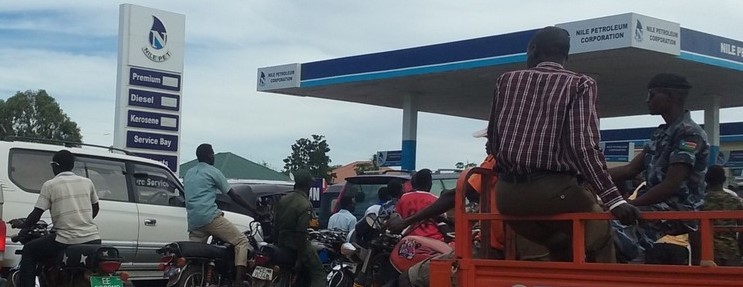Fuel operators in Yei town this week kept their businesses closed, protesting an order from the county authorities to reduce prices.
Last week, the commissioner of Yei River County issued an order instructing the fuel operators to bring down prices from the current 650 pounds to 450 pounds per litre. This follows gains made by the South Sudanese Pound (SSP) against the US dollar.
Speaking to Radio Tamazuj on Friday, a fuel dealer who only identified himself as Mohamed said: “We bought fuel expensively from neighbouring countries. Also, the government has imposed heavy taxes on us, so we cannot just sell fuel at a low cost as decided by the government although the pound has shown signs of appreciation against the US dollar.”
Edward Luba, the chairperson of the Yei River County Chamber of Commerce, confirmed that the fuel operators shut down their businesses for the past four days.
“The fuel dealers in the past agreed to sell a litre of fuel at 650 SSP when the rate of 100 dollars used to be at 65,000 SSP. Now that the exchange rate of the 100 US dollar has dropped to 41, 000 SSP in the market, so there is a need to reduce the price to 450 SSP per liter. Prices of essential food commodities in the market have also dropped, so why can’t the prices of fuel drop?” he asked.
According to Edward, Yei town currently relies on one petrol station, which is expected to run out of fuel in the coming few days.
“My suggestion is that we need to have another joint meeting with all of them so that we agree on the way forward, and the truth is that the price of the US dollar has dropped and also prices of goods in the market have dropped,” he said.
Justoson Victor, a civil society activist in Yei, urges the local government and the traders to quickly address their misunderstanding to avert fuel hoarding and rising transport costs.
“I appeal to the business people running fuel stations and the local government to have a dialogue to address the matter. I am sure if nothing is done soon, fuel will get into the black market and this will affect prices of food in the market as well as transport,” he said.
Although South Sudan produces crude oil, it lacks refinery facilities and thus relies on imports of fuel from neighbouring countries.




